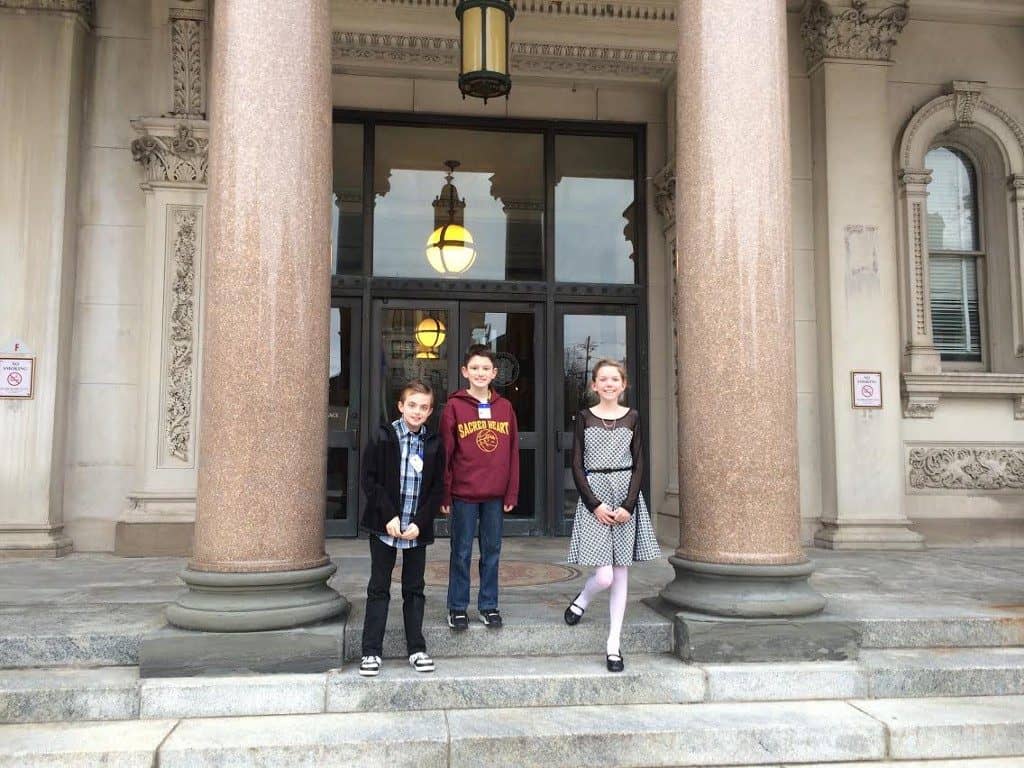
Debbie Falcone’s fourth grade class gained the support of Assemblyman Troy Singleton

Last week, three students from Charles Street School testified in front of the Environment and Solid Waste Committee in an attempt to ban the use of polystyrene in New Jersey schools.
Last year, Maura Russell, Brayden Minnix and Ryan Quigg — fifth-grade students at Charles Street School — learned about the dangers of polystyrene from their fourth-grade teacher, Debbie Falcone.
“It’s really, really bad for the environment. It doesn’t decompose so it’s just filling up our landfills and it’s causing health problems to animals and human beings,” the 10-year-old Maura said.
Maura said she thinks the testimony went well, as the committee voted unanimously to move forward with the ban.
She added when she learned Washington, D.C., had banned polystyrene food containers, she wanted to do the same thing for New Jersey schools.
“We thought that that was a great thing and we wanted to do the same,” Maura said. “I’m a Girl Scout, and we like to make a change and help the environment.”
While Falcone introduced her students to the potential dangers of polystyrene, she says they created their own passion for it.
“The kids were really concerned about the effects of styrofoam — those on wildlife and people. They read and they realized the ill effects and the possible carcinogens that are in polystyrene,” Falcone said. “We also learned about the environmental impact of foam and how foam doesn’t biodegrade and it sits in our landfills for thousands of years.”
The students wrote to Assemblyman Troy Singleton about their idea to ban polystyrene in New Jersey schools. Falcone says the students were thrilled when they received a response back. Last spring, Singleton visited Charles Street School to hear the students’ proposal.
“We were so excited when we heard how he supported our idea,” Falcone said. “We didn’t have to sell him on our idea. He was ready to go with us.”
Falcone says Singleton had done his own research before visiting the school and suggested the kids focus on banning polystyrene just in schools, as they had previously considered targeting restaurants as well.
In addition to learning about styrofoam and the dangers that come with it, Falcone says this was also a great hands-on experience for the students to learn how a bill becomes a law.
“I think it’s important that our students know that they do have a voice and they can get involved,” Falcone said. “This is what learning is all about — having that real world connection.”
In addition to Washington, D.C., cities such as Los Angeles and Honolulu have also passed city-wide bans on polystyrene. Falcone says research shows it can really be a danger, and cities are starting to catch on. If the bill passes, New Jersey will be the first state to ban polystyrene in schools statewide. Alternatives for polystyrene include paper and plastic food containers and trays.
Falcone says for her, the experience has been an educator’s dream come true and one of her most exciting adventures as a teacher.
“Our experience on Thursday couldn’t have been surpassed,” Falcone said in reference to her students testifying. “It was just an incredible feeling to see the students testify and to be part of it. It was really an education you just can’t get in a textbook or in the classroom.”
Falcone has not yet been told when the bill will go to a floor vote, but she’s excited about this small victory alone. Maura is also ecstatic.
“We got all the votes that we needed, and we’re excited that we’re moving onto the next step,” Maura said.









